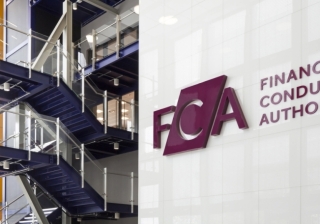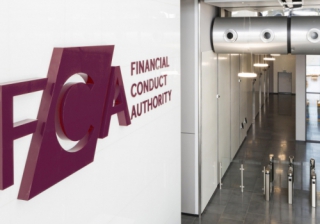Mortgage arrears up 29% year-on-year: Bank of England
New mortgage commitments picked up in Q2, 26.2% higher than Q1 and the first increase since Q3 2022.

"We've not yet seen the full impact of rising interest rates; it typically takes eight to nine months for the economy to show the scars."
The Bank of England's latest data for Q2 shows that the value of outstanding balances with arrears (defined as the borrower failing to make contractual payments equivalent to at least 1.5% of the outstanding mortgage balance or where the property is in possession) increased by 13.0% on the quarter and 28.8% on a year earlier, to £16.9 billion. This is the highest level seen since Q3 2016.
It also revealed the proportion of total loan balances with arrears increased on the quarter from 0.89% to 1.02%, the highest since 2018, and that new arrears cases equated to 16.0% of the total outstanding balances with arrears in 2023 Q2, which was little changed compared to the previous quarter.
Speaking to Newspage, brokers were concerned by the “bleak" data but said the worst is yet to come. According to Jamie Lennox, director at Dimora Mortgages, “this data makes for bleak reading, especially given that much of the damage of 14 consecutive base rate increases has yet to filter through. The percentage of arrears in 12-18 months' time when more people have come off their ultra-low rates could be dramatically higher. The Bank of England runs the real risk of overcooking the base rate increases with long-term damage to the housing market and the finances of millions.”
His views were shared by Lewis Shaw, founder of Shaw Financial Services: “The speed at which mortgage arrears are increasing is terrifying and should give cause to pause at the next Bank of England interest rate meeting. This is dire data, and we know that it's about to get an awful lot worse with 1.6m mortgage holders due to renew over the next twelve months at significantly higher rates than anyone has been used to for well over a decade. We're still at the thin end of the wedge, so unless we have a change of direction from Andrew Bailey, we're about to see a mortgage meltdown for thousands of households that will ripple through the property market for years to come. If this isn't the canary in the coal mine, I don't know what is."
Imran Khan, co-founder of lettings specialist, PropertyLoop, also said the worst is yet to come: "The surge in arrears is a stark indicator of the financial pinch many are facing. Homeowners and landlords alike are grappling with soaring interest rates and increased costs, feeling the bite in real time. Tenant arrears are climbing, especially in London, as the knock-on effect becomes palpable. We've not yet seen the full impact of rising interest rates; it typically takes eight to nine months for the economy to show the scars. With 350,000 people per quarter coming off fixed rates—most being buy-to-let landlords—this is a ticking time bomb. As rates potentially hit 6% or 7%, many will find themselves in an untenable position. The real test of our economic resilience will reveal itself in 2024. Expect to see a spike in repossessions and a deeper strain on the economy in the next 18 to 24 months."
The latest data also shows that the value of gross mortgage advances in Q2 was £52.4 billion, which was £6.3 billion lower than the previous quarter and 32.8% lower than in Q2 2022. This was the lowest observed since Q2 2020.
However, the value of new mortgage commitments is 26.2% greater than the previous quarter, but remains 26.6% less than a year earlier, at £61.7 billion. This was the first increase and highest value observed since Q3 2022.
In addition, the share of gross mortgage advances with LTVs above 90% was 4.4%, 0.1pp lower than a year earlier but a 0.4pp increase compared to the previous quarter.
Mark Harris, chief executive of mortgage broker SPF Private Clients, commented: "Encouragingly, new mortgage commitments – lending agreed to be advanced in coming months – picked up in Q2, 26.2% higher than Q1 and the first increase and highest value since the third quarter of 2022, indicating there are still those keen to move who are getting on with it.
"Even though borrowers are paying more for their mortgages, this is not putting them off as they tighten their belts and absorb the higher cost of borrowing. The good news is that mortgage pricing continues its downwards trend, even though another base rate rise is expected next week.
"Buy-to-let lending dipped, representing 8.1% of gross advances, the lowest since Q4 2010. This is unsurprising given the tax and regulatory changes which have hit the sector hard, although experienced investors continue to seek out opportunities and expand their portfolios."
Gareth Lewis, managing director of MT Finance, added: "It's a positive to see that new mortgage commitments picked up quarter-on-quarter suggesting borrowers may have paused at the start of the year to see how things would pan out but are now proceeding.
"While mortgage rates have increased from all-time lows, they are still at affordable levels although there has been some hesitancy to buy while there is uncertainty around where they might peak. As we've said for some time now, we need stability to allow consumers to gain confidence.
"Reassuringly, the evidence suggests that consumers are not over-stretching themselves, but remaining cautious and in some cases still waiting to see what happens. Once rates have plateaued, this will make decision-making easier and inspire more confidence."

Breaking news
Direct to your inbox:
More
stories
you'll love:
This week's biggest stories:
This week's biggest stories:
Market Financial Solutions
Market Financial Solutions enters administration due to 'unexpected banking issue'

FCA
FCA fines duo over £100,000 for insider dealing

FCA
FCA chief confirms regulatory shift away from new rules

FCA
FCA reveals new protections for Buy Now Pay Later borrowers

FCA
FCA bans and fines for 'reckless adviser' and fund manager upheld by Tribunal

FCA
FCA fines former Carillion CEO £238,000
